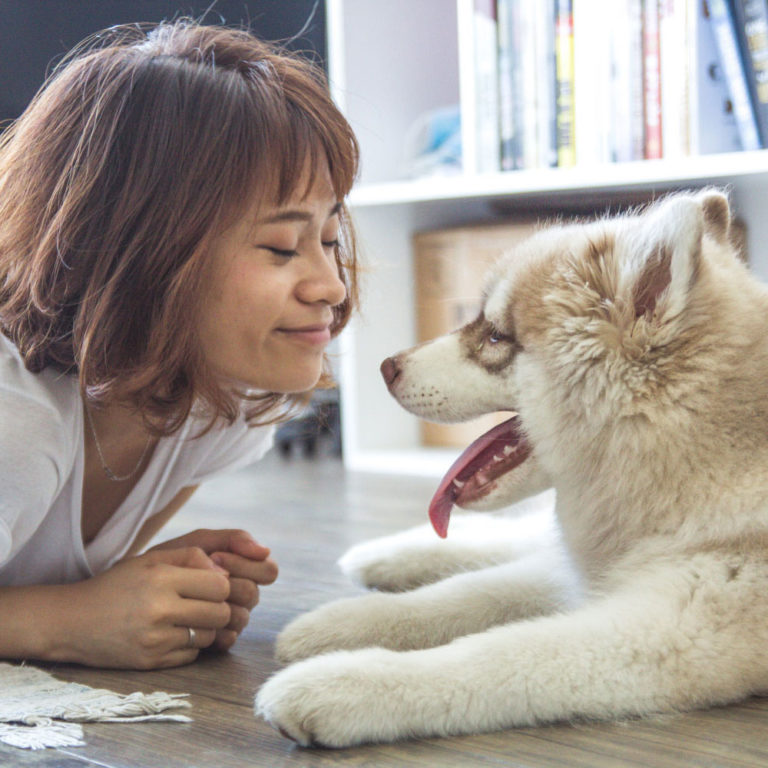A pet is the best friend you can have – unless you’re allergic to one. Have you experienced eye irritation after contact with pets? Or maybe after entering a room with pets?
In the United States, pet allergies are common. Approximately 15 to 30% of Americans suffer from pet allergies according to a study by Asthma and Allergy Foundation. Although cat allergies are more common, dog allergies are more severe.
It’s estimated that 62% of American households have pets, and 10% of the populace have animal allergies. As such, a significant number of people are affected.
Do pets cause eye irritation?
Pets can cause eye discomfort directly and indirectly. Usually, the body’s immune system fights foreign substances, like viruses and bacteria. Pets carry eye allergens including dander, urine, pollen and saliva that can irritate the eyes.
Symptoms of pet-related eye irritation
- Burning or itchy eyes
- Watery eyes
- Red or pink eyes
- Swollen or puffy eyelids
Causes of pet related eye irritation
1. Pet dander
Pet dander (dead skin cells) is a leading cause of pet related eye irritation. The eyes become itchy, red and watery after entering a room where pets stay or after coming in contact with them. Additionally, the National Institutes of Health unraveled that detectable amounts of dander can be found in every home.
Dander is one of the most common and stubborn allergens. Dogs, cats and feathered pets generate dander. Dead skin cells have microscopic dander-like flakes of proteins and skin from urine and saliva that are responsible for triggering eye discomfort.
Pet dander gets worse as pets age. That implies that dander from old pets are worse than those from younger pets. Dander gets ferried through the air until it enters the mucous membranes in the eyes and lungs.
One or both eyes can be affected. In some instances, these symptoms can be accompanied by sneezing, running nose or congestion.
Eye irritation is caused by the body’s immune system by classifying harmless substances as allergens. As a result, production of IgE antibodies is triggered attacking the allergen as if it’s bacteria or virus.
2. Pet saliva
Pet saliva contains proteins and allergens that can cause eye irritation. When pets chew, lick or drool household items or people, the allergens become airborne. Your eyes become exposed to these allergens when you come in direct contact with your pet or when you touch your eye afterwards.
To manage such irritation, avoid touching your face or eyes immediately after interacting with your pet. Cats are more likely to spread irritants in their saliva because they groom their fur frequently.
3. Pet urine
Cat and dog urine have a sharp ammonia smell. Extreme exposure to ammonia can cause eye irritation. Pet urine becomes entrenched in carpets, furniture, and baseboards posing risks to you and your loved ones.
Low concentrations of ammonia from urine can cause rapid eye irritation. Prolonged exposure can lead to permanent eye damage, and blindness. In fact, children are more susceptible to eye problems from ammonia inhalation.
4. Pollen, mold and dust
When pets wander outside, they may carry dust, mold and pollen allergens that cause eye irritation. In fact, most people tend to mistake pollen allergies as dog allergies.
Solutions to pet-related eye irritation
If you are visiting homes with pets, kindly request the owners to keep pets in a separate room or area if you’re spending a few days there. When returning home from your visit, pet dander may still be present from the carried on luggage and clothes. Therefore, it is wise to wash clothes and wipe down luggage once you have returned home from traveling.
What if you have pets at home? Keep pets out of your bedroom if you are allergic. Also, avoid hugging, petting and kissing your pet and limit the number of rooms they can access. It’s also wise to use a central air cleaner to minimize blowing allergens throughout the house. Place your cat’s litter box away from vents or choose a place not connected to your central air.
For those who experience eye irritation after interacting with pet birds, avoid using feather pillows and down comforters.
Most importantly, avoid touching your eyes and face after coming in contact with pets. For those using contact lenses, it’s imperative to observe proper eye hygiene to prevent eye irritation.
Pet related eye irritation is a common challenge. Some of them are caused by animal allergies while others are not. Fortunately, eye discomfort can be managed with good hygiene, proper pet management, eye drops, allergy shots and antihistamines.
Sources

